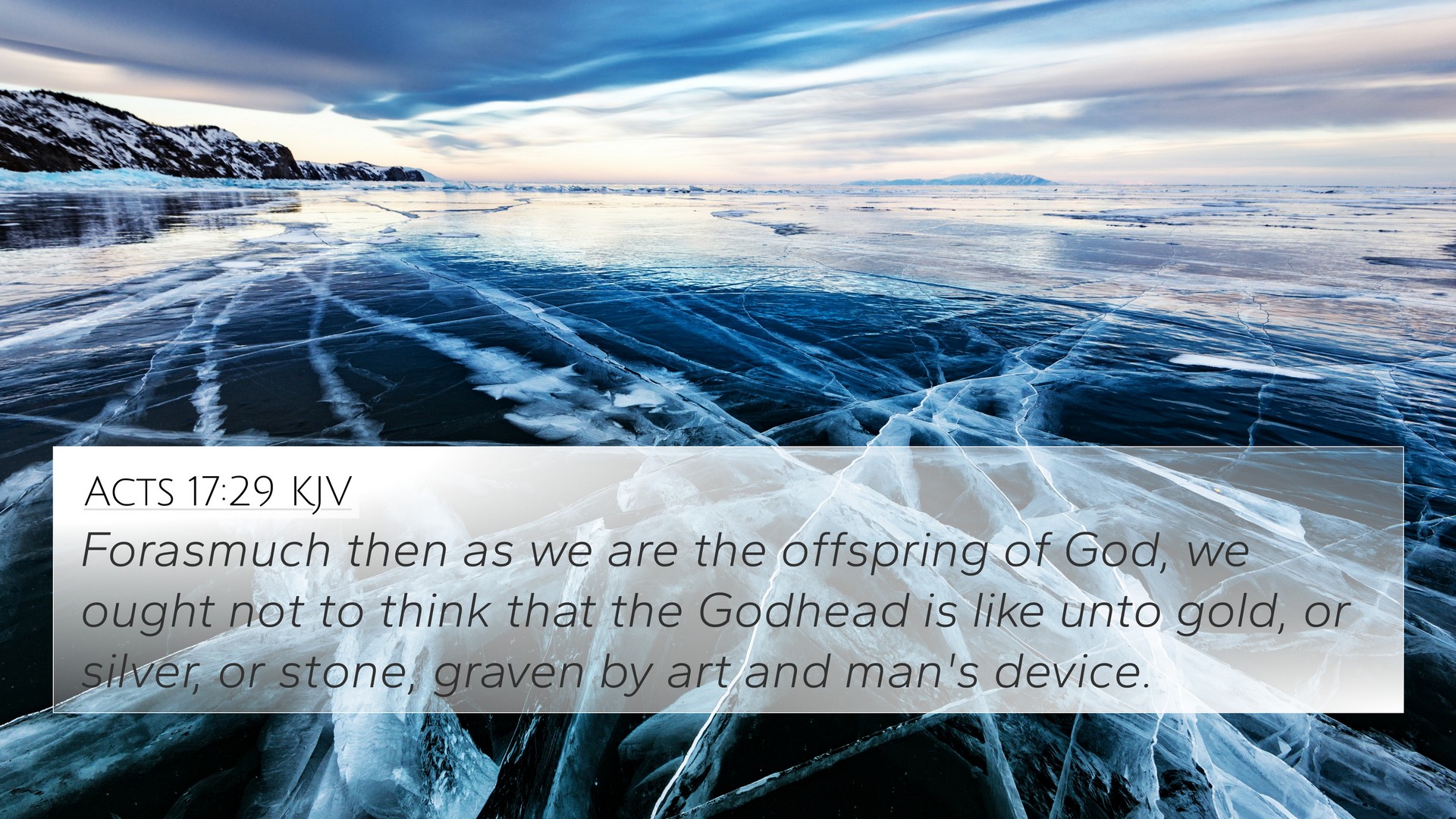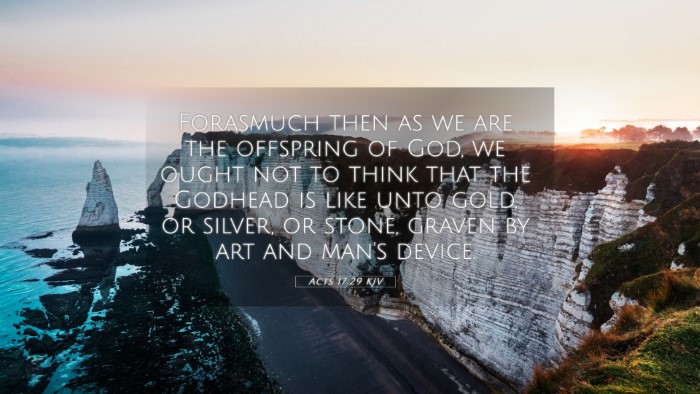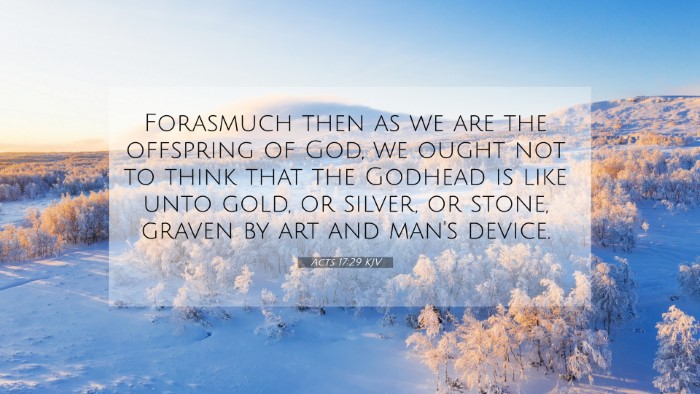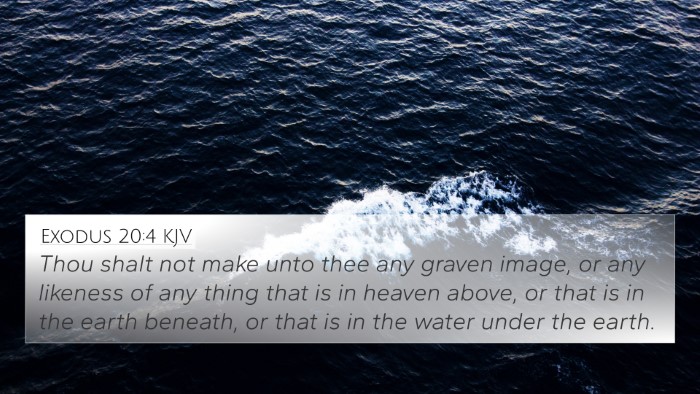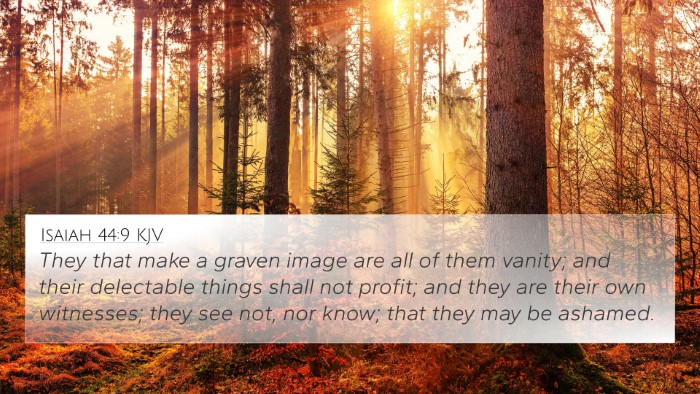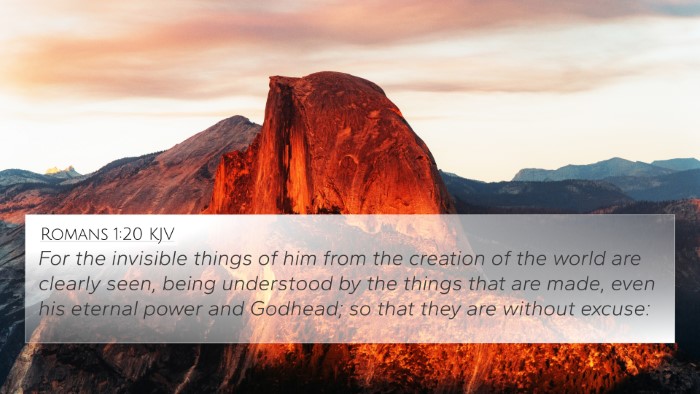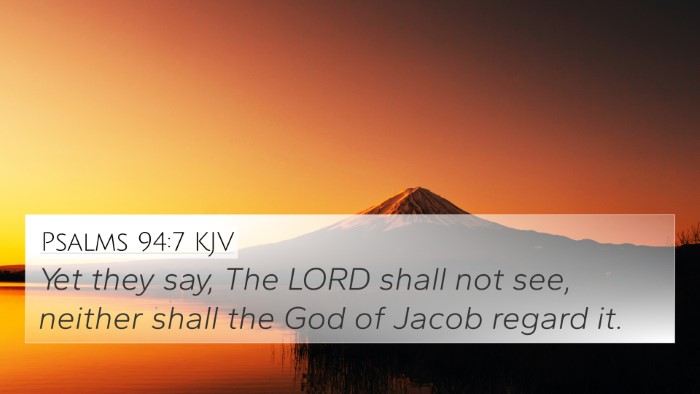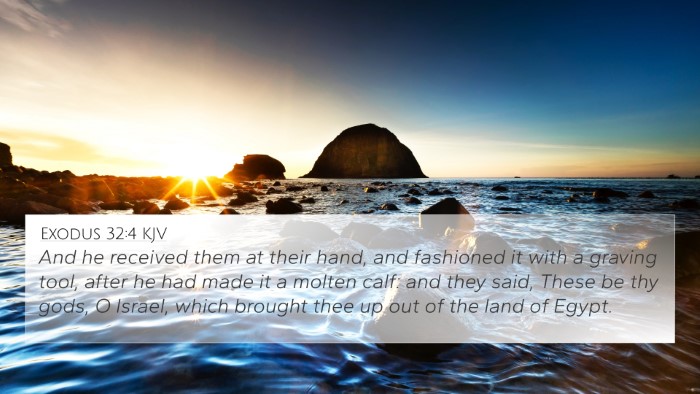Understanding Acts 17:29
Acts 17:29 states: "For as much then as we are the offspring of God, we ought not to think that the Godhead is like unto gold, or silver, or stone, graven by art and man's device." This verse comes from a speech by Paul in Athens, addressing the intellectual and spiritual climate of the city. Here, Paul emphasizes the divine nature of God, contrasting it with the idolatry common among the Greeks.
Summary of Meaning
This verse serves as a profound declaration concerning the nature of God. It conveys several key themes:
- Divine Origin: Paul begins by asserting that humanity is made in the image of God, highlighting our spiritual lineage as God's offspring.
- Rejection of Idolatry: The comparison to gold, silver, and stone signifies a denunciation of physical representations of deity that reduce God to mere material forms.
- The Nature of God: Paul’s speech underscores that God is not a creation of human invention but exists transcendentally above all human understanding.
Commentary Insights
Several respected public domain commentaries provide depth to our understanding of this verse:
- Matthew Henry: His commentary emphasizes the folly of idolatry, illustrating how humans often degrade the sublime essence of God by reducing Him to mere statues or objects. He also notes that understanding oneself as God's offspring invites a sense of dignity and responsibility in our relationship with the divine.
- Albert Barnes: Barnes points out that Paul is addressing sophisticated philosophers, urging them to reconsider their views about God. He affirms that if we are indeed God's children, we must appreciate His nature as higher than any created entity, thus rejecting the confines of materialism.
- Adam Clarke: Clarke elaborates on the implications of being God's offspring, accessible to divine wisdom and grace. He asserts that this understanding requires believers to leave behind the superstitions that lead to idolatry and embrace a true knowledge of God rooted in spiritual truth.
Related Bible Verses
Acts 17:29 can be cross-referenced with several other passages that illustrate the themes of divine nature and the rejection of idolatry:
- Genesis 1:26-27: Human beings are made in God's image, affirming our connection to the divine.
- Isaiah 40:18-20: It asks, “To whom then will you liken God?” stressing the impossibility of comparing Him to physical idols.
- Romans 1:21-23: This passage discusses the downward spiral of humanity in worshiping created things rather than the Creator, echoing Paul's message against idolatry.
- 1 Corinthians 8:4-6: This refers to the understanding that there is only one true God, which aligns with Paul’s assertion in Acts.
- Colossians 1:16-17: It reinforces the supremacy of Christ over all creation, emphasizing that all things exist through Him and for Him, contrasting with man-made idols.
- Psalm 115:4-8: This Psalm describes the uselessness of idols and the futility of those who trust in them, echoing Paul’s condemnation.
- 1 Thessalonians 1:9: Referring to the conversion of the Thessalonians, it explains how they turned from idols to serve the living God, showcasing the transformative response to understanding God's true nature.
Connections Between Scriptures
Understanding Acts 17:29 requires recognizing the connections between various Biblical texts. These connections promote a more profound understanding of God's nature:
- Thematic Connections: Both Acts 17:29 and Isaiah 40 tie into themes of divine transcendence and the insignificance of man-made representations of God.
- Doctrinal Parallels: Passages such as Romans and Colossians parallel Paul’s teachings by framing God’s essential, uncreated nature compared to idol worship.
- Progressive Revelation: Understanding the nature of God progresses from the Old Testament scriptures, where idolatry is repeatedly condemned, to the New Testament's clarity that God is revealed fully in Christ.
The Importance of Cross-Referencing
Utilizing tools for Bible cross-referencing can greatly enhance one's study. Here are some insights on how to approach this:
- Bible Concordance: A concordance helps identify specific words and themes across the Bible, allowing for deeper thematic study.
- Cross-Reference Guide: Various guides provide summaries of how verses interact, helping to clarify thematic connections.
- Comprehensive Bible Cross-Reference Materials: Utilizing extensive cross-reference resources, you can explore nuanced relationships between verses such as Acts 17:29 and its parallels.
Applying the Insights
Believers can apply the truths found in Acts 17:29 in their lives by:
- Strengthening Understanding: By contemplating the nature of God in contrast to idols, believers reinforce their faith foundation.
- Engaging in Community: Sharing insights on these connections enriches group studies and sermons.
- Encouraging Personal Study: Individuals can explore other cross-references to visually and contextually link the teachings of scripture.
